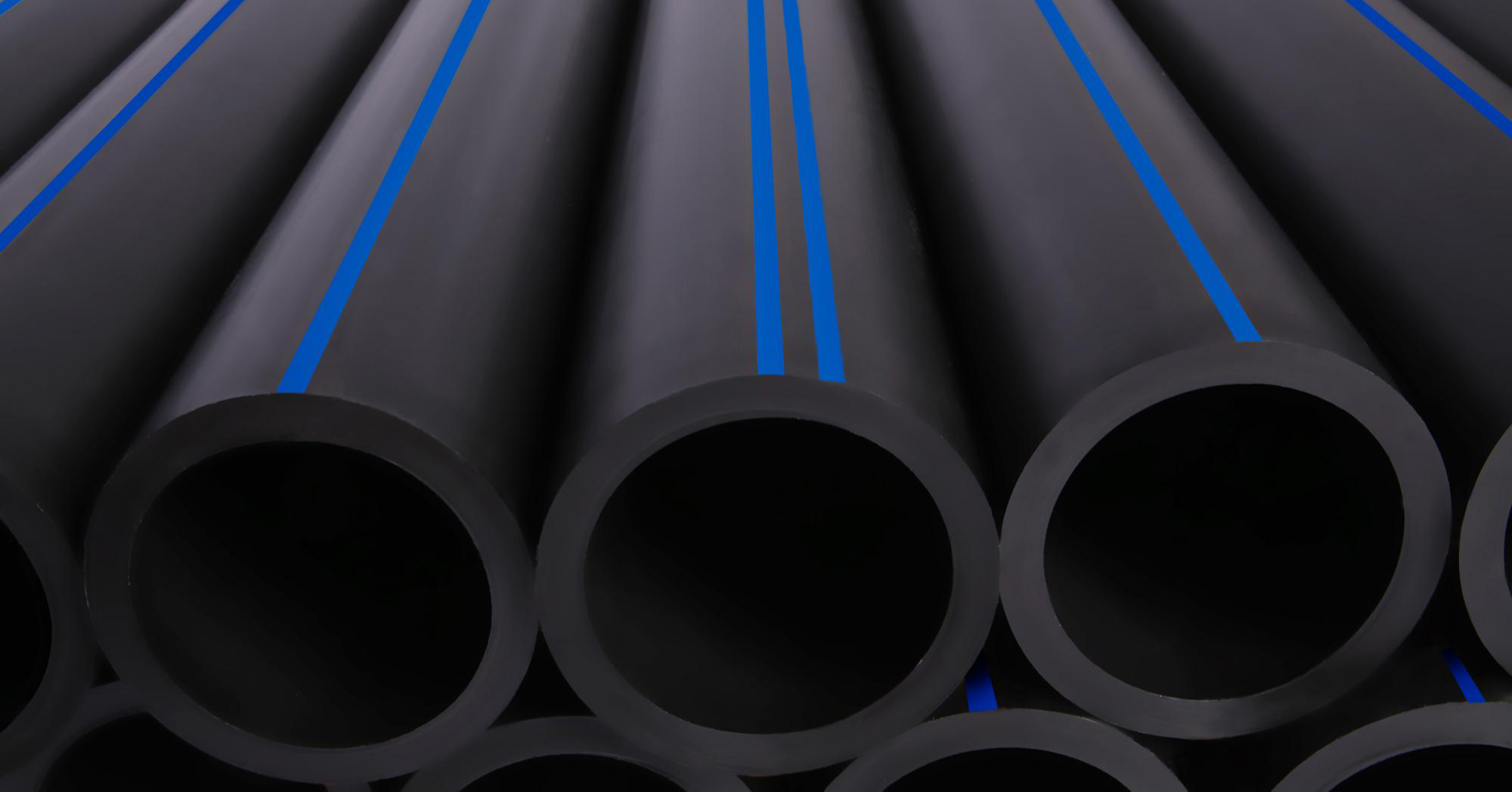Complete Guide to hdpe pipe fittings Midland TX and Their Uses
Wiki Article
Comprehending the Trick Advantages of HDPE Pipe for Water and Wastewater Administration
The usage of HDPE pipeline in water and wastewater administration offers many advantages that merit consideration. Its phenomenal durability and lengthy life-span make it a favored choice for numerous jobs. Additionally, the material's resistance to corrosion and chemical damages boosts its reliability in numerous settings. Nonetheless, the benefits extend beyond just durability and resistance. Discovering its cost-effectiveness and ecological impact exposes even much more compelling factors for its extensive adoption in modern-day frameworkOutstanding Toughness and Longevity

HDPE pipeline stands out for its outstanding durability and durability, making it a recommended choice in water administration systems. Built from high-density polyethylene, these pipes can endure substantial pressure and tension, guaranteeing trustworthy performance gradually. Their robust nature enables them to withstand extreme ecological problems, consisting of temperature variations and dirt movements, which can cause various other products to stop working.
The life-span of HDPE pipelines frequently exceeds half a century, providing an economical solution for towns and industries alike. Additionally, the material's light-weight properties streamline installment, reducing labor costs and durations. This durability reduces the demand for regular repair work or substitutes, even more enhancing its financial charm.
In water monitoring applications, the reliability of HDPE pipelines implies less interruptions and boosted solution continuity, making them integral to sustainable framework development. The mix of longevity and long life solidifies HDPE's function as a foundation in reliable water management options.

Resistance to Deterioration and Chemical Damage
While lots of products surrender to rust and chemical damages with time, HDPE pipes show remarkable resistance, making them suitable for different water management applications. This durability comes from the molecular structure of high-density polyethylene, which is inherently non-reactive and does not wear away like metals or deteriorate from exposure to rough chemicals. As a result, HDPE is very reliable in atmospheres with hostile compounds, such as wastewater systems that may have acids, bases, and organic solvents.
Additionally, HDPE pipelines can endure ecological factors such as soil level of acidity and saline problems, further enhancing their suitability for diverse applications (American Plastics HDPE Pipe Manufacturing). Their ability to keep architectural honesty with time minimizes the threat of leakages and failings, which is critical in making certain the safety and security and integrity of water distribution and wastewater administration systems. As a result, the resistance to rust and chemical damages markedly adds to the overall performance and longevity of HDPE piping services
Cost-Effectiveness and Financial Benefits
When thinking about the financial implications of water monitoring systems, the cost-effectiveness of HDPE pipelines becomes evident. These pipelines use lower installation and upkeep expenses compared to standard materials like metal or concrete. Their light-weight nature simplifies transportation and installation, resulting in lowered labor expenses. Additionally, HDPE pipelines show a long lifespan, often going beyond half a century, which equates to fewer substitutes and long-term cost savings.The resistance of HDPE to rust and chemical damages reduces the demand for costly repair services and replacements. The pipes also support reliable water flow, lowering energy expenses connected with pumping systems. By reducing leakages and water loss, HDPE pipelines add to substantial economic benefits for districts and industries alike. On the whole, the preliminary financial investment in HDPE piping can yield considerable economic returns over the lifespan of the water administration system, making it a sensible choice for lasting infrastructure advancement.
Ecological Sustainability and Lowered Influence

Convenience and Adaptability in Setup
As a result of their distinct buildings, HDPE pipelines provide remarkable versatility and adaptability in setup, making them suitable for a wide variety of applications. cast iron sewer pipe repair Their lightweight nature permits much easier handling and transportation, lowering labor expenses and installment time. HDPE pipelines can be bent and shaped to fit various surfaces and project demands, which is particularly valuable in testing atmospheres.Additionally, their resistance to rust and chemical damages enables for installment in diverse setups without the need for specialized safety finishings. The capacity to fuse joints creates a continual, leak-free system, enhancing the overall stability and dependability of the installation. HDPE's versatility additionally accommodates ground motion, lowering the risk of damage in locations prone to moving dirt. Overall, these qualities make HDPE pipelines not just versatile but likewise a recommended choice for water and wastewater administration systems.
Often Asked Inquiries
How Does HDPE Pipe Contrast to PVC in Water Monitoring Applications?
HDPE pipe uses remarkable adaptability, resistance to corrosion, and toughness contrasted to PVC. Its lighter weight facilitates simpler installment, while its useful link long life-span reduces replacement costs, making HDPE a preferred choice in water management applications.What Is the Lifespan of HDPE Pipeline Under Normal Problems?
Under normal conditions, HDPE pipes can have a life expectancy varying from 50 to 100 years. Their resilience and resistance to rust add to their long-lasting performance in various applications, making them a reputable choice for infrastructure.Are HDPE Pipeline Recyclable After Their Life Span?
Yes, HDPE pipes are recyclable after their service life. Pipe Manufacturing Midland TX. They can be refined and repurposed right into new products, significantly minimizing environmental impact and advertising sustainability within the industry, making them a green selection for piping optionsWhat Is the Setup Process for HDPE Water Lines?
The installation procedure for HDPE pipes entails website preparation, trenching, pipeline fusion or mechanical signing up with, backfilling, and pressure screening. Proper strategies guarantee a durable and reliable system for moving water and wastewater successfully.Can HDPE Pipes Be Utilized for Both Potable and Non-Potable Water Equipments?
Yes, HDPE pipes can be used for both potable and non-potable water supply. Their adaptability, sturdiness, and resistance to corrosion make them appropriate for numerous applications, guaranteeing secure and efficient transport of water in various contexts.Report this wiki page